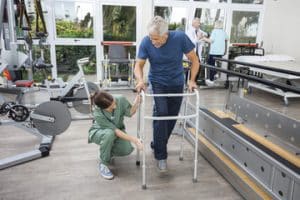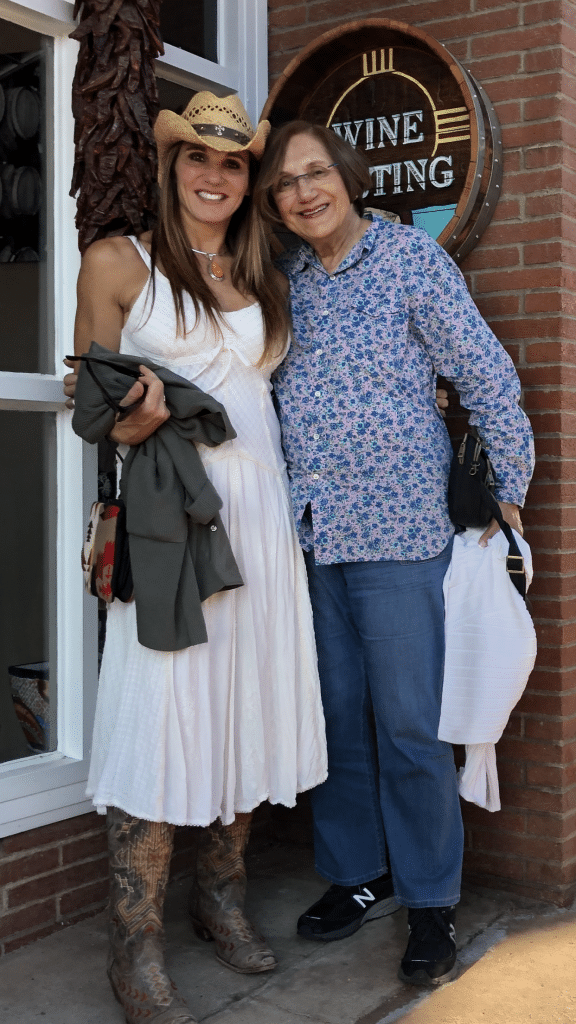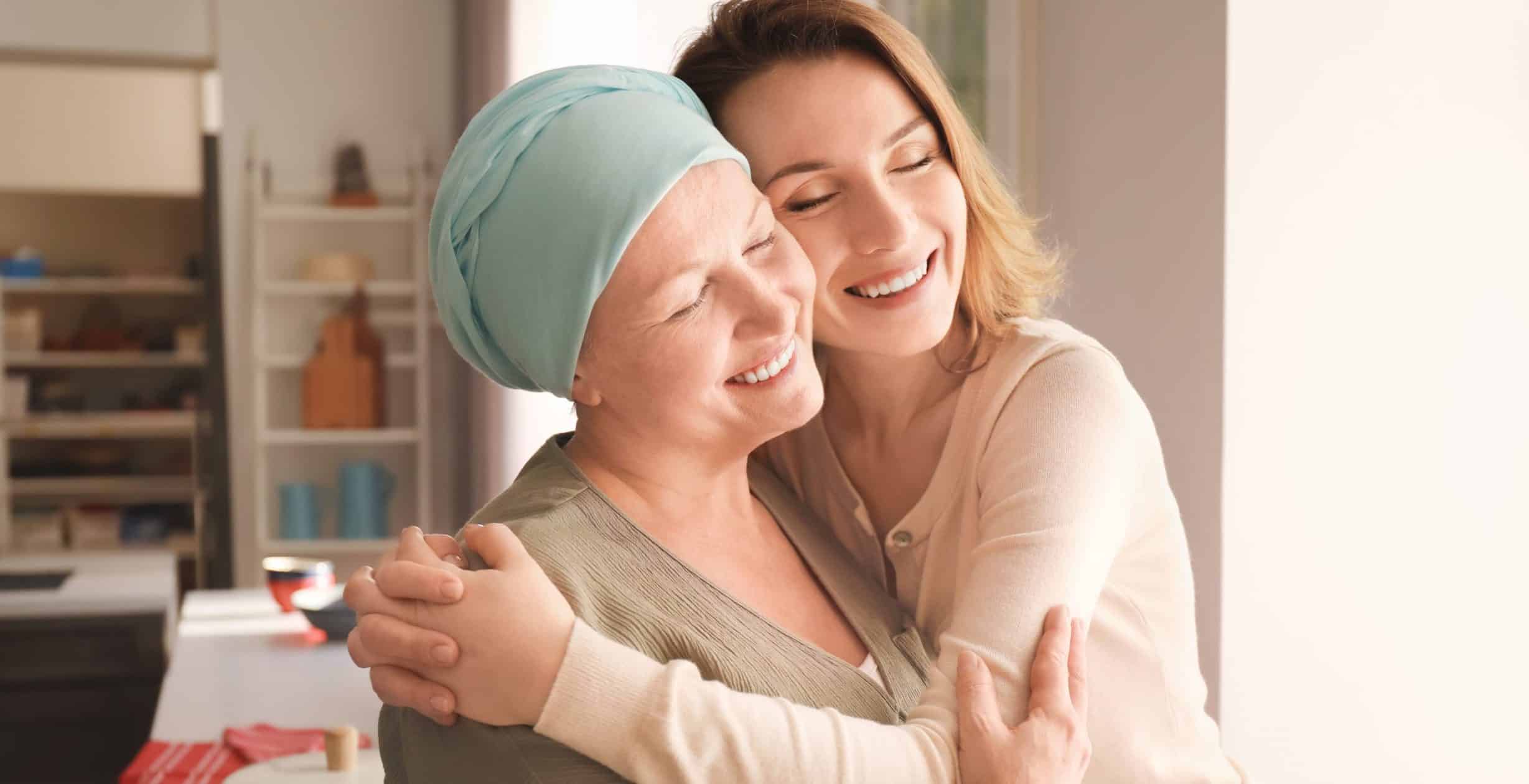Proper Care & Feeding of The Cancer Caregiver
There is an important component that may include emotional and spiritual support.
There are many feelings that arise from the moment someone is told “you have cancer,” until the day they complete treatment and beyond. Just being there to listen and let them know you are there for them is critical. Anyone who has been a caregiver will tell you that providing care and support during this challenging time can be incredibly difficult. Most caregivers will put their own feelings and needs aside purposely, or inadvertently. Focusing on the person with cancer, and the many tasks involved for the caregiver, can be very difficult to maintain for a long time. Fundamentally, if the caregiver does not take care of themself, they won’t be able to take care of the cancer patient or anyone else.
The caregiver may have spent a lot of time with the cancer patient or they may not have been an active part of their life, prior to their cancer diagnosis. When caregivers are first “called” to be in this new role, most do not have any previous experience. They may find themselves taking care of their spouse, a parent, a grandparent, a friend, or even a child. While the experience is often overwhelming and somewhat scary at first, many caregivers say that they grew as a person as they shared in their loved one’s cancer journey.
Sometimes the caregiver him or herself has health issues that make it even more challenging to physically and emotionally be in a position of taking care of someone else.

Feeling guilty may be one of the most common emotions felt by caregivers.
They may feel that they aren’t doing enough to help the patient and/or that they are not able to give them the time and attention they need because of their work and family commitments. Some caregivers feel guilty that they are healthy and their loved one is fighting for their life. It can be difficult to hide their own emotions whenthey are scared, upset, or angry. Cancer patients themselves often worry about how they will pay their bills, will they be able to keep working, will they lose their job, how the cancer will affect the family, and of course, will they survive. The caregiver must be able to separate the patient’s sadness, fear, and depression from their relationship. The caregiver may feel like a “punching bag” when the patient takes their anger and frustration out on them.
Caregivers often express feeling like no one understands what they’re going through.
Everyone is always asking about the patient, but no one seems concerned for the caregiver. They may not have time to see friends and other family members as well as do things that they used to be able to do. Caregivers need to give themselves permission to grieve their own personal losses as well as the potential loss of their friend or loved one. They must prioritize and do the things that are important and/or bring them joy. They need to be able to rest and recharge even if the patient gets angry at them. Patients are going through their own stages of grief and may not realize the effect their anger has on others around them. Sometimes it’s hard for the caregiver to remember that the anger isn’t really targeted at them.
They must be honest with themselves as to what they can and can’t do for the patient and what they need or want to do for themselves.
Caregivers must be encouraged to take care of what’s important to them and not to worry about what others may think. Caregivers should ask for what they need and not hold back when it comes to the things that would be most helpful for them. They should make a list of other friends, colleagues, or family members who may be able to help with cooking, cleaning, grocery shopping, yard maintenance, childcare etc. Maybe there is someone else who can share in the responsibility of getting the cancer patient to their doctors’ appointments and sitting with them for a few hours each day, or even spending the night looking after them. It can be very disappointing to the caregiver when they ask for help and someone says no to helping out. They may take it personally and it may hurt their feelings or even make them angry; especially when people they really expected would help out and be there for them let them down. Often times people are coping with their own problems, or maybe they are afraid of their own mortality, and simply can’t “handle” it.
It can be equally challenging to be away from a loved one who has cancer.
The patient may be a widowed parent, and the caregiver is the only one that the parent feels they can count on. This may place a tremendous amount of pressure on the potential caregiver, especially if they have a family of their own to take care of. Caregivers who live far away from their loved ones most must rely on the telephone and email as their source of communication. When they can’t get them on the phone, or they don’t respond to emails, it can be very frightening to the caregiver. It’s easy to panic and jump to the conclusion that something terrible has happened to their parent. In addition, they are faced with determining whether situations can be dealt with over the phone or whether they necessitate an in-person visit. If this requires a flight, that places even more stress on the caregiver, emotionally and financially. The caregiver may feel guilty because they are not able to be there for their parent more often. It will be important for the long-distance caregiver to create a support network of people, who live near their loved one, whom they can call day or night in an emergency ,or just to check in and make sure everything is okay.
Many long-distance caregivers feel that they must make themselves available 24/7 when they are with their loved one. Out of guilt for not being there all of the time, the caregiver allows themselves to be at the patient’s beck and call and often lets their personal needs, including work demands, fall by the wayside. They should be encouraged to do things for themselves, even if it’s just a few minutes several times per day. They can schedule personal phone calls when their loved one is taking a nap or visiting with their doctor. Perhaps they can set their alarm to get up a ½ hour before their loved one does and go for a walk or do some breathing and meditation.
While there are certain to be times of high tension between the caregiver and the patient, there can also be a breakdown of “walls” that have existed throughout the relationship.
There may be a new and deeper connection that is formed bringing them closer than ever before. This may also be a very emotional time if there was previous turbulence in their relationship. They may each realize that they have wasted time and that the time they now share is limited. This can stir up a great deal of emotions and may lead to a deep sadness. It is not uncommon for the caregiver and patient to share their regrets and discuss how they wish things would have been different. This may be much-needed closure in order for them both to move on and “accept” where they are currently at. Many people become closer when they are facing challenges together. They should try and share special moments and make lasting memories with one another. The relationship may become stronger than ever from all that they are going through together.
Caregivers should find someone that they can open up to about their feelings or fears.
They may find it helpful to talk with someone outside the situation. Writing or journaling may be a great outlet for the caregiver to vent their thoughts and feelings. They may want to write about their frustrations, fears, or even anger over the situation. Perhaps they will want to express their thoughts and feelings over the potential loss of their loved one. One technique that is used is to encourage the caregiver to write down whatever comes to their mind at any given moment. There doesn’t have to be any rhyme or reason. It may help to un-clutter all of the thoughts that are swirling in their head. Maybe it even allows them to have a different outlook on their situation and be grateful for the time that they get to spend with their loved one. The selfless act of caregiving may help them to find an inner strength that they never knew was there!It’s critical that they take care of their basic needs in order to have the strength to help others.It’s critical that they take care of their basic needs in order to have the strength to help others.
It’s critical that they take care of their basic needs in order to have the strength to help others.
It is very easy to let oneself go when caring for someone else. It’s similar to taking care of a newborn baby. Your life is no longer your own. Many caregivers are so busy taking care of their loved one that they overlook their own well-being. Many caregivers suffer from fatigue, sometimes downright exhaustion. Lack of sleep, an unhealthy or inadequate diet, lack of exercise, and high levels of stress may result in a weaker immune system. They may find themselves gaining or losing weight, losing muscle and generally unhealthy. Although their number one job is to take care of their loved one, they must set aside time for themselves each day for their mental and physical health.
Cat naps can be quite energizing if they aren’t getting enough quality sleep. Getting outside in nature for some walking and meditation can do wonders. Any kind of exercise, even gardening, cleaning the house, mowing the lawn, or walking up and down the stairs, can improve one’s overall disposition. Finding at least 15-30 minutes a day to exercise will absolutely help the caregiver feel better and manage their stress. If the patient is physically able, they would benefit tremendously by finding time in their day to exercise too! While it is important for the caregiver to have some “alone time,” this could also be a wonderful boding experience with their loved one. They might exercise together and even try cooking a new and healthy recipe together.
One of the main roles of a caregiver may be to help their loved one work with their health care team.
They will probably accompany the patient to their doctor visits, chemotherapy and radiation sessions. It’s a good idea to keep a notebook of the patient s medical information. This should include prescription doses and times of day that they need to take specific medications. Include the dates of procedures and tests. The patient may be suffering with brain fog from treatment or other medications that they are on.
They will rely heavily on the caregiver to take notes at doctor’s appointments as well as making sure appointments are kept. Caregivers can make a list of questions and concerns that they have for the medical team. It may be a good idea for the patient to give the caregiver partial power of attorney in the event that important decisions need to be made and the patient is not in a position to do so. Many patients are afraid to ask too many questions. They don’t want to second-guess their doctor or feel that if they get a second opinion that they will be offending their doctor and he or she will “blacklist” them. Getting a second opinion can have a have a huge impact by making the patient feel that they have more control over the situation. They are either reassured by their original doctor’s treatment plan, or they have new hope from the new doctor.
Another challenge of being a caregiver is when your loved one is overcome by pain.
Their mood can change in the blink of an eye and you may notice high “highs’ and low “lows.” The patient may become extremely distant, they may have trouble sleeping, and they may have a difficult time staying focused and completing tasks. No one should have to be in pain or discomfort. The medical team should ask regularly about pain levels, but it’s up to the caregiver and the patient to keep the medical team informed. Pain can be managed throughout treatment. Patients may use a combination of prescription medications, meditation, acupuncture, acupressure, massage, yoga, and all forms of exercise. Many people get used to the pain because it becomes a part of everyday life for them. They may forget what it’s like to live without it and learn how to manage through each day the best they can. It’s important for the caregiver and their loved one to be honest with the doctor about their pain and if it is affecting their daily routine.
They will need to determine what kind of help their loved one needs, and for how long?
Sometimes treatment raises questions about the patient’s living situation, especially if the caregiver lives out of town. Consideration will need to be given to whether or not it is safe for the patient to be home alone. While the caregiver may see the need to make changes on behalf of their loved one, the patient’s voice still needs to be heard. Many cancer patients, especially when they are older, fear losing their independence and being seen as weak or a or even helpless. Many mental health workers, doctors, nurses, home care providers, and agencies that work with older adults can help mediate the conversation. It’s never easy to bring up the subject of advance directives, but it is a conversation that must be had. Advance directives are legal papers that tell the doctors what to do if the patient can’t speak for themself. This allows the patient to decide in advance how they want to be treated under various medical circumstances and appoints a person to make financial decisions for the patient when he or she can’t make them. Many caregivers have described the experience of taking care of a friend or loved one during such a difficult period as their own personal journey. They say it has forever changed them and the way they look at life, love, and relationship



